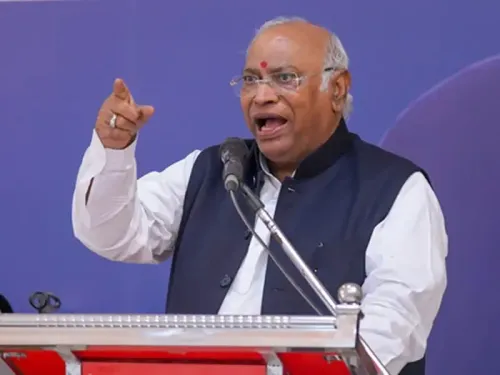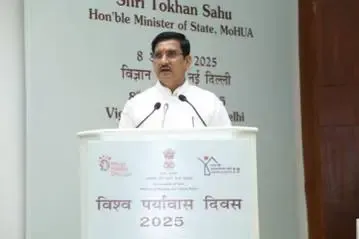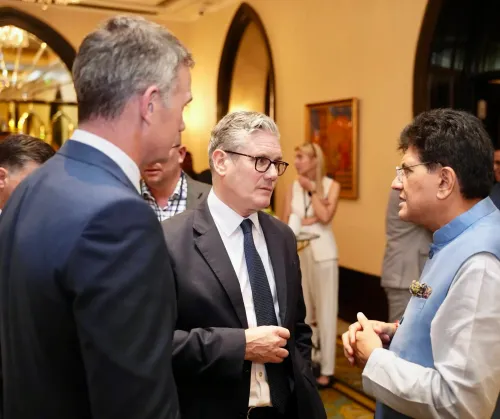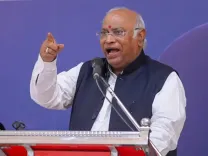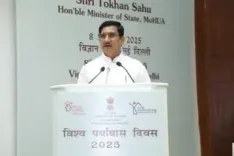Why is Stalin Criticizing the Centre over Keezhadi Report Delay?

Synopsis
Key Takeaways
- M.K. Stalin criticizes the delay in the Keezhadi report.
- The report is vital for understanding ancient Tamil civilization.
- The DMK is planning a large protest to raise awareness.
- The Keezhadi site has yielded significant archaeological findings.
- The controversy highlights ongoing cultural tensions.
Chennai, June 17 (NationPress) The Chief Minister of Tamil Nadu and DMK President, M.K. Stalin, has issued a strong critique of the BJP-led Union government for purportedly postponing the release of the final report on the Keezhadi archaeological excavations. This report is viewed by many in Tamil Nadu as vital evidence of the rich cultural and intellectual heritage of ancient Tamil civilization.
In a pointed message shared on the social media platform X, Stalin emphasized that the historical significance of the Tamil race has been scientifically validated through the findings from Keezhadi. He stated that it is the perspective of "some individuals" that needs alteration, not the conclusions drawn from the excavations.
"How many challenges has our Tamil race encountered? We have battled against them for millennia, and with scientific backing, we have substantiated the age of our civilization! Yet, certain minds refuse to acknowledge this. It’s not the facts that require correction; it’s the perspectives of some people," he remarked.
Stalin's remarks were made in support of a significant protest being organized by the DMK’s student faction near Madurai on Wednesday. This demonstration, scheduled to take place at Veeraganur, aims to denounce what the DMK terms the Union government's "anti-Tamil stance" in delaying the full release of the Keezhadi excavation report.
Reposting a message from DMK Students’ Wing Secretary Rajiv Gandhi, Stalin urged party members and the public to join in large numbers to advocate for Tamil rights.
"Keezhadi is the birthplace of Tamils," he proclaimed.
The Keezhadi archaeological site, situated in the Sivaganga district, has revealed significant discoveries over the years, including urban designs, Tamil-Brahmi inscriptions, and artifacts indicating a highly literate and urbanized ancient Tamil society dating back to 600 BCE.
The excavations, conducted by the Archaeological Survey of India (ASI) and later by the Tamil Nadu State Department of Archaeology, have garnered both national and international interest. However, controversy arose when the ASI reportedly postponed the publication of the final excavation reports and reassigned the main archaeologist in 2016, leading Tamil scholars and political figures to accuse the Centre of attempting to suppress evidence that underscores the independent antiquity of Tamil civilization.
With tensions rising once again, the upcoming protest is viewed as a symbolic assertion of Tamil identity and a renewed call for academic transparency and cultural justice.

